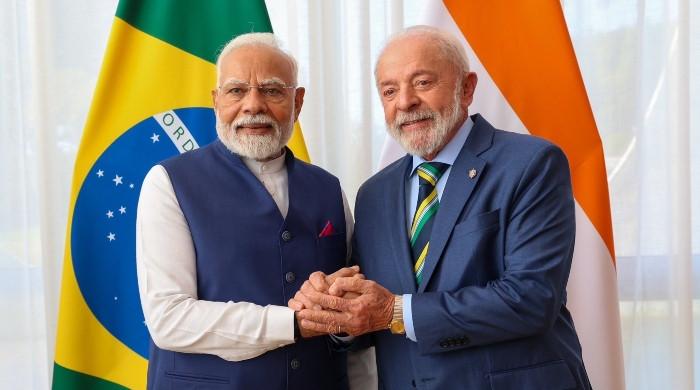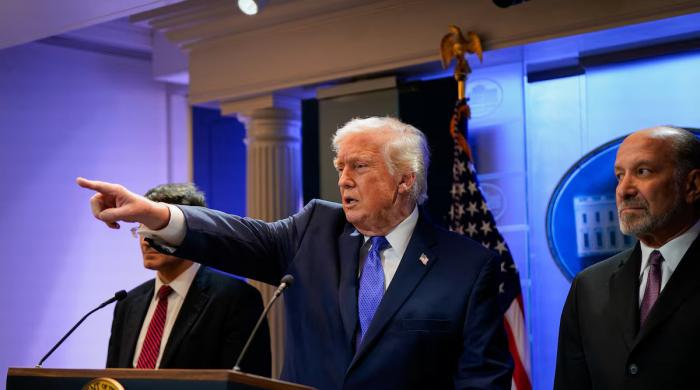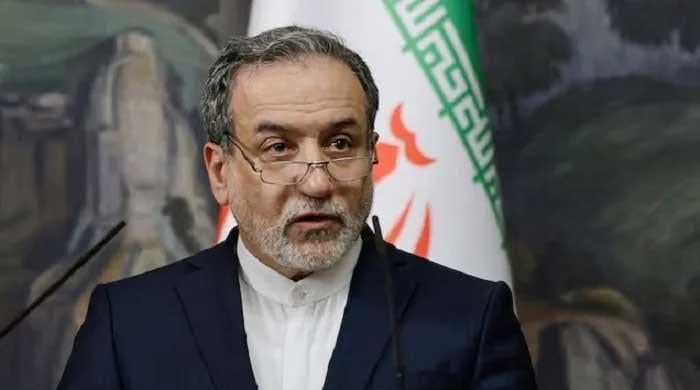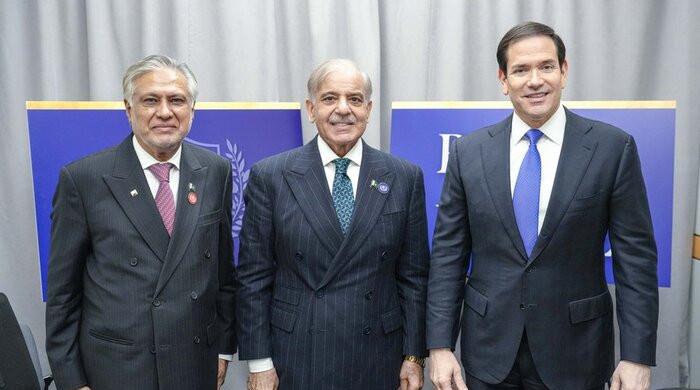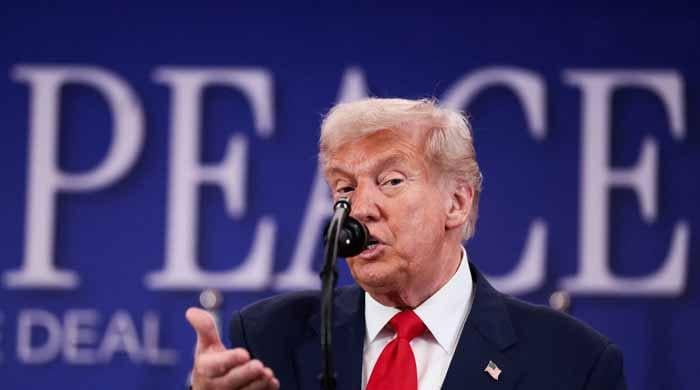Germany rejects Trump's demand over NATO defence spending
Germany also alleged that US was indulging in trade warfare
April 05, 2017
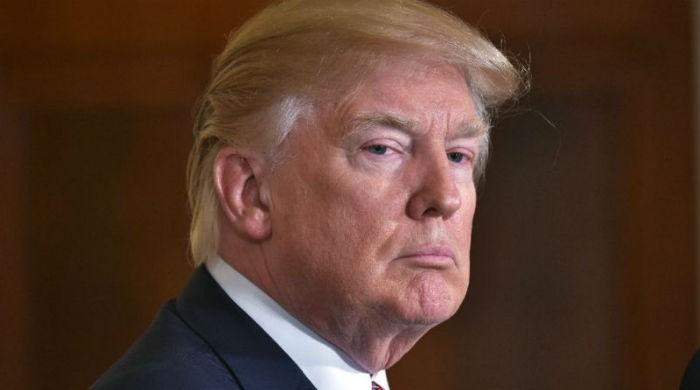
The sharp clash between German foreign minister, Sigmar Gabriel and US secretary of state, Rex Tillerson in NATO headquarter reflects a simmering conflict, which might result in stronger national armies, intense nationalism, tough austerity measures and changed perceptions on international interventions.
Tillerson demanded that “allies that do not have a concrete plan to spend 2 percent of GDP on defence by 2024 need to establish one now.” Gabriel termed his demand to raise Germany's annual defence spending from €40 billion to €70 billion as, “completely unrealistic and undesired.” Claiming expenditures on “operation capabilities” as defence spendings, he said: “We are currently spending a lot of money on accepting refugees. They come because military interventions went wrong and because there was no stabilisation afterwards.”
Gabriel also attacked America's anti-dumping measures against European steel producers. He said Americans wanted to protect their industry by disadvantaging the better German steel industry. He alleged that US was indulging in trade warfare, against which, “the EU now has to consider whether to file a complaint with WTO.”
“Trump has to realise that if America adopts protectionist measures, Germany, the EU and China will adopt counter-measures, immediately, ruthlessly and without compromise, which would involve direct consequences, counter-tariffs, other penalties, but also publicly effective lawsuits at the WTO,” said German newspaper, Suddeutsche Zeitung.
Trump's interview to Britain's Sunday Times and Germany's Bild newspaper in January 2017 shook EU leadership who had opposed Trump's candidacy. Calling NATO alliance “obsolete”, Trump praised Brexit and predicted further disintegration of EU. He threatened Germany's auto industry with sanctions and criticised its refugee policy as a blunder. While opposing sanctions against Russia, he termed EU “a vehicle for German domination.”
Responding sharply, Angela Merkel had said, “I think we Europeans hold our fate in our own hands.” Sigmar Gabriel insisted, “We must not adopt a servile attitude now… In dealing with Trump, we need German self-confidence and a clear stance.” French President Francois Hollande said “transatlantic cooperation will from now on be based on Europe’s own “interests and values.”
Anti-war sentiments are deep-rooted in German political culture. Intellectuals like Gunter Grass influenced top German leaders like former chancellor Gerhard Schroder in leading France and Belgium to oppose Iraq war in 2003, which compelled Americans to form an “Alliance of the Willing” with Eastern European countries like Poland and Hungary. Germany, with support of French president Jack Chirac and Belgian leadership stood firm when Rumsfeld threatened to shift NATO headquarter to Poland.
Most Germans regardless of political divide believe that the failed US doctrine in the Middle East has caused refugee influx to Europe. Moreover, Trump's demand of 345 billion dollars during Merkel's recent visit to Washington did not go well with German people who still remember that America's National Security Agency was caught doing massive surveillance in EU, bugging even Angela Merkel. According to Foreign Policy April 2016 issue, “The fallout from these revelations was painful. It drew an unexpectedly emotional reaction from the German public, who started to question if the United States was still their ‘friend.’”
Many European analysts believe that NATO has lost its ideological underpinnings after demise of cold war and the Warsaw Pact. On the other hand, there is a strong feeling that Europe should develop its own defence force apart from NATO. According to Ulrike Guerot, senior research fellow at the European Council on Foreign Relations, "the EU does want to be more independent from the US but it doesn't have the military capability to do so. That became clear in Bosnia. Whenever some kind of military intervention is needed, it can't be done without the US."
Responding to a question about US’ disproportionate dominance, former secretary general of NATO Anders Fogh Rasmussen told Geo.tv: “The American dominance comes out of their contributions. If we request for 120 helicopters, for example, 100 would come from America and 20 from all other European countries.”
If the gradually intensifying conflict between US and Germany does not subside, the upcoming NATO summit on May 25 might present a scenario of hardened positions with threatening postures from all sides of the divide.





